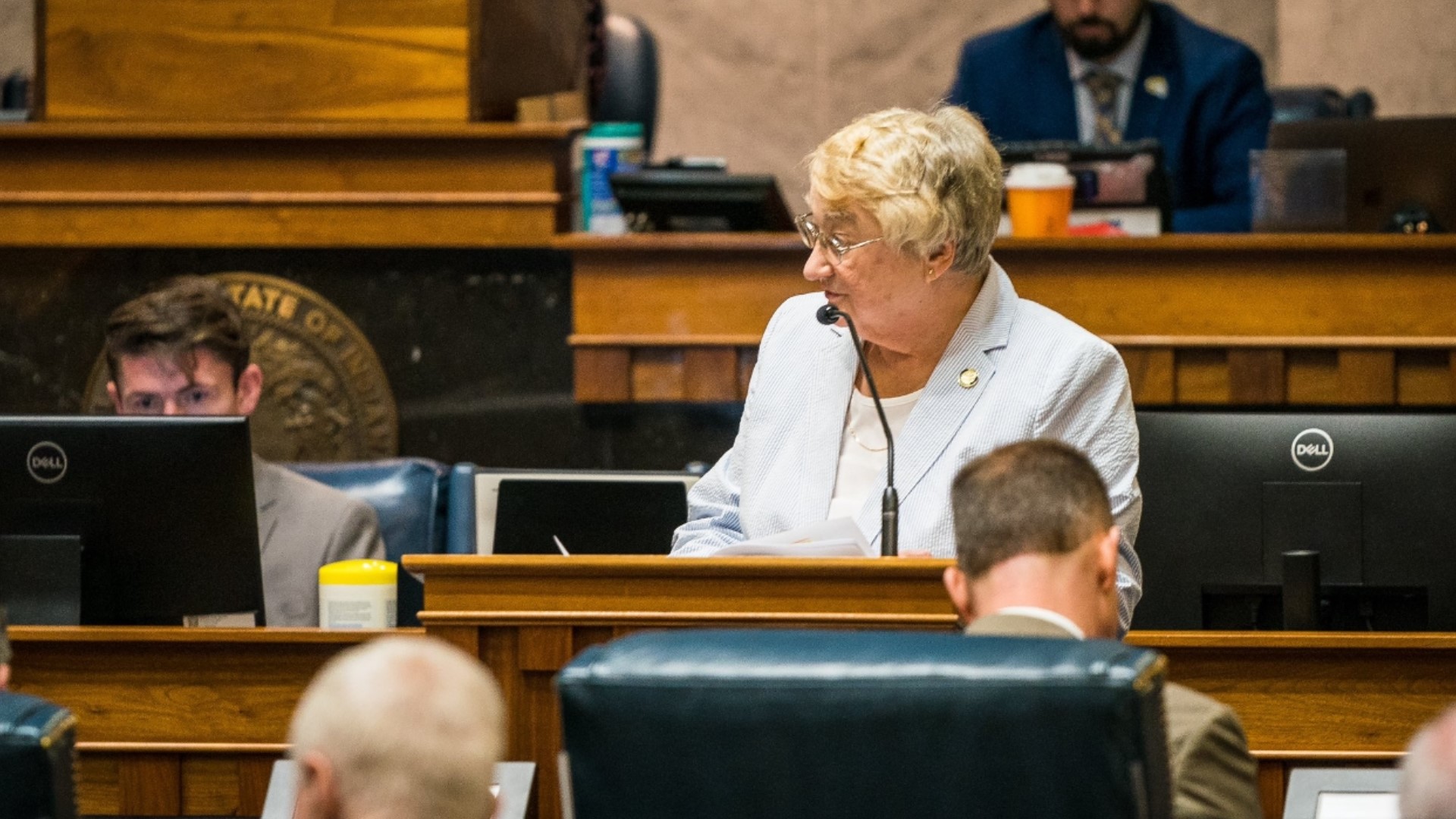INDIANAPOLIS — The Indiana Senate approved a bill that will ban the majority of abortions in the state. Senate Bill 1 passed 26-20 with some Republican members saying they voted in favor despite disliking the proposed bill.
There were four camps among lawmakers.
One of those camps was Republican lawmakers, including the bill's author Sen. Sue Glick R-District 13, who voted in favor of the bill because they thought something was better than nothing.
"If we do nothing, if we vote this bill down, the present law in Indiana allows abortions without exceptions for 20 weeks,” said Glick. “I ask you to protect those lives."
On Saturday we also heard from Republican senators voting in favor of the bill despite not liking it was written. Sen. Mike Bohacek, R-District 8, was among that group.
Bohacek wanted more time for victims of rape and incest to be able to access an abortion. He discussed how he has a special needs adult daughter who has a higher chance of becoming a victim. The senator said his family would likely not know if she was pregnant within eight weeks.
Despite those concerns, he said, "I'm going to support this bill today because we need to keep this conversation moving."
Sen. Gary Byrne was on the opposite side of the spectrum. He voted "yes" despite believing there should be a total ban.
“Life begins at conception, and thou shall not kill,” Byrne said.
Byrne was one of 18 senators that voted for a failed amendment that would have eliminated the exceptions for rape and incest victims. He said he hoped the House would change the bill to eliminate exceptions.
The author of Amendment 58, Sen. Michael Young, left the Republican caucus over the exception issue. He voted no on the bill because he thought it didn’t go far enough.
Then there were those against it because they thought the Legislature was invasive. They included every member of the Democratic party.
Members said they stalled, not because they thought it would change GOP members’ minds but for abortion rights protestors.
"I'm doing it to buy Hoosier women a few more moments, just a little more time to be full human beings,” said Sen. Shelli Yoder, D-District 40.
Lifelong Sen. Vaneta Becker, R-District 50, also spoke out against the bill.
“This bill doesn’t make things better, it makes things worse,” she said. “More women, children and families will suffer.”
She went on to chastise her colleagues, “unqualified, but arrogantly presuming to interfere and dictate the work of physicians."
GOP leadership advanced the abortion ban with the narrowest of margins.
Glick said she would like the Legislature to provide more wrap-around services for women and families. She also wrote amendments to expand access to contraception to help end unwanted pregnancies.
"We can't just stand and say that we need to change this law and tighten up on abortions in Indiana if we're not willing to step forward and help these women,” she said.
The Senate did approve a bill to allocate $45 million dollars to help women and children, but she said that’s just a start.
Senate Minority Leader Sen. Greg Taylor, D-Indianapolis, said the bill may have advanced but there were no winners Saturday.
“The pro-life movement can’t claim victory, the pro-choice movement can’t claim victory,” he said. “[Republicans are] getting hit from both sides of this issue ... and none of them can escape.”
The House now will take up the bill on Monday. State Rep. Robin Shackleford said it will be assigned to the House Public Health committee.
Representatives could approve it as is and send it to the governor’s desk. Or they could change it. There’s a chance the House, the more conservative Legislative body, may pass a more restrictive bill. It’s unclear if a more restrictive bill could pass the Senate and become law.

